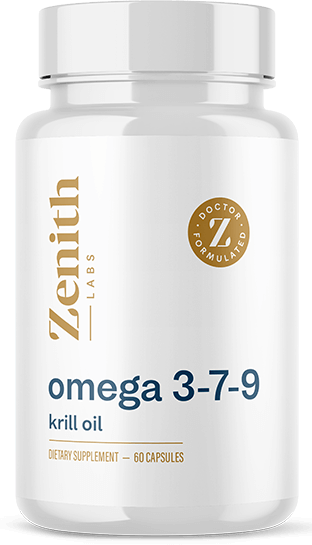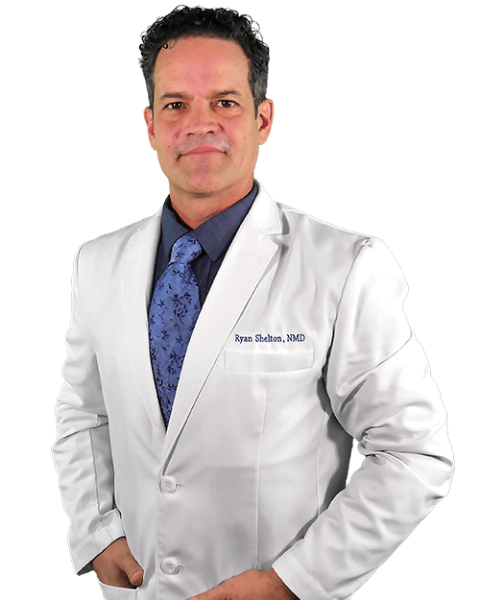A recent question came in online: Which is worse, trans fats or processed sugar? Now, sometimes questions posed like this, which is worse, just begs the conclusion that they’re both bad for you. But based on research, trans fats are worse than processed sugar. Let’s get into the details to understand why that is.
About trans fat
 Trans fat is an unsaturated fatty acid and a by-product of partially hydrogenated oils. It’s found in many processed foods, including margarine, coffee creamers, fast foods, frozen pizza, snack foods, and baked goods. Trans fat is also found in some peanut butter. It is frequently used by the food industry because it improves the stability of flavor and shelf life of food. It seems that the primary reason trans fats were added to the food system was due to the scrutiny of saturated fat that researchers had in the 1950s and ’60s. Considering the benefits to shelf life, flavor stability, and flexibility of food, manufacturers were gladly making the change from saturated fat to trans fat.
Trans fat is an unsaturated fatty acid and a by-product of partially hydrogenated oils. It’s found in many processed foods, including margarine, coffee creamers, fast foods, frozen pizza, snack foods, and baked goods. Trans fat is also found in some peanut butter. It is frequently used by the food industry because it improves the stability of flavor and shelf life of food. It seems that the primary reason trans fats were added to the food system was due to the scrutiny of saturated fat that researchers had in the 1950s and ’60s. Considering the benefits to shelf life, flavor stability, and flexibility of food, manufacturers were gladly making the change from saturated fat to trans fat.
Medical professionals consider trans fat to be one of the most unhealthy compounds found in food today. Trans fat consumption is associated with an increase in bad cholesterol (or LDL), decrease in good cholesterol (HDL), and increased inflammation. These health risks can speed up the development of atherosclerosis, hardening of the arteries, increase the risk of diabetes, coronary heart disease, and cardiac-related sudden death.
 In 2015, the United States Food and Drug Administration announced its decision to eliminate trans fats from food in the United States by 2018. Even though the FDA has recognized the negative health effects of trans fats and is taking steps to remove it, trans fat is still prevalent in our food. While the American Dietetic Association recommends no more than 1% of your daily caloric intake come from trans fats, unclear nutrition labels mean a lot of trans fats are still sneaking into your diet. Anything labeled as “partially hydrogenated fat” or “zero grams of trans fat”, doesn’t mean that there’s no trans fat in the product. This is because the FDA previously allowed products to be labeled with “zero grams of trans fat” as long as the product had less than 0.5 grams of trans fat in it. Multiple servings of “zero” grams of trans fats foods can result in much more than the recommended amount.
In 2015, the United States Food and Drug Administration announced its decision to eliminate trans fats from food in the United States by 2018. Even though the FDA has recognized the negative health effects of trans fats and is taking steps to remove it, trans fat is still prevalent in our food. While the American Dietetic Association recommends no more than 1% of your daily caloric intake come from trans fats, unclear nutrition labels mean a lot of trans fats are still sneaking into your diet. Anything labeled as “partially hydrogenated fat” or “zero grams of trans fat”, doesn’t mean that there’s no trans fat in the product. This is because the FDA previously allowed products to be labeled with “zero grams of trans fat” as long as the product had less than 0.5 grams of trans fat in it. Multiple servings of “zero” grams of trans fats foods can result in much more than the recommended amount.
In 2006, an analysis found that a 2% increase in trans fat intake is associated with a 23% in cardiovascular disease risk. Cutting commercial trans fat from 2.1% of daily energy intake to 1.1% could potentially prevent 72,000 cardiovascular deaths per year. A drop to 0.1% of daily average energy intake could potentially prevent 228,000 cardiovascular deaths every year in the US.
 Now, there is a difference between processed trans fats and natural sources of trans fats. There are natural sources of trans fats that are produced by ruminant animals such as cows, sheep, and goats. The milk or dairy that they produce contain trans fats. The studies are quite clear that industrial, synthetic forms of trans fat cause an increase in risk factors of diabetes and cardiovascular disease, but the same is not true from the naturally-occurring trans fat from ruminant animals.
Now, there is a difference between processed trans fats and natural sources of trans fats. There are natural sources of trans fats that are produced by ruminant animals such as cows, sheep, and goats. The milk or dairy that they produce contain trans fats. The studies are quite clear that industrial, synthetic forms of trans fat cause an increase in risk factors of diabetes and cardiovascular disease, but the same is not true from the naturally-occurring trans fat from ruminant animals.
About processed sugar

Some people cannot stop themselves from eating too much processed foods, in effect, eating their way into shorter lifespans caused by chronic conditions. It’s wise to be aware of both the evidence and your personal food habits and triggers for overeating junk food. The bottom line is that no amount of trans fats from industrial, synthetic forms has been deemed safe. On the other hand, you can eat sugar — as long as you do so extremely responsibly.
In the 1750s, our average intake of sugar was six to eight pounds per year. In the 1850s, that figure went up to 25 pounds per year. In the 1950s, it went up to 120 pounds per year. Currently, it sits around 130 pounds per year, which is about 40 teaspoons per day. That’s an enormous amount of sugar! Sugar is used for energy, but it’s the over consumption of processed sugar that is really detrimental to health. Estimates are that 20% of current caloric intake is from reduced empty calories of processed sugar.
 Artificial sweeteners such as aspartame, neotame, saccharine, sucralose, cyclamate, and alitame, have all been studied. The truth is that we do not yet know the full impact of artificial sweeteners. What we do know is that artificial sweeteners can trick the brain into thinking that you’re not eating something as sweet as it is, and so you tend to over-consume food. Researchers for Harvard University found that individuals who drink a lot of diet soda or take in a lot of artificial sweeteners may lose their taste for natural sugars found in fruits and vegetables. That’s where the problem lies — when you tend to overconsume processed sugars and artificial sweeteners with disregard to the natural sugars found in fruits in vegetables.
Artificial sweeteners such as aspartame, neotame, saccharine, sucralose, cyclamate, and alitame, have all been studied. The truth is that we do not yet know the full impact of artificial sweeteners. What we do know is that artificial sweeteners can trick the brain into thinking that you’re not eating something as sweet as it is, and so you tend to over-consume food. Researchers for Harvard University found that individuals who drink a lot of diet soda or take in a lot of artificial sweeteners may lose their taste for natural sugars found in fruits and vegetables. That’s where the problem lies — when you tend to overconsume processed sugars and artificial sweeteners with disregard to the natural sugars found in fruits in vegetables.
 High-fructose corn syrup is a blend of both glucose and fructose where both molecules are joined together, but it’s highly processed. The metabolic response by the body in reference to mostly leptin and insulin levels are negative when it comes to high-fructose corn syrup. Currently, it’s been concluded by an expert panel that high-fructose corn syrup and sucrose do not have that much difference influence on body composition and obesity. But make no mistake, high-fructose corn syrup is not blameless when it comes to adult obesity. It does cause obesity when over-consumed and is constantly correlated with increases in obesity and the development of diabetes. Sugar-sweetened beverages are associated with chronic inflammation, which can be related to increased risk for diabetes and heart disease.
High-fructose corn syrup is a blend of both glucose and fructose where both molecules are joined together, but it’s highly processed. The metabolic response by the body in reference to mostly leptin and insulin levels are negative when it comes to high-fructose corn syrup. Currently, it’s been concluded by an expert panel that high-fructose corn syrup and sucrose do not have that much difference influence on body composition and obesity. But make no mistake, high-fructose corn syrup is not blameless when it comes to adult obesity. It does cause obesity when over-consumed and is constantly correlated with increases in obesity and the development of diabetes. Sugar-sweetened beverages are associated with chronic inflammation, which can be related to increased risk for diabetes and heart disease.
 Processed sugar has been related to development of obesity, diabetes, fatty liver disease, high blood pressure, high triglycerides, cardiovascular disease, kidney stones, irritable bowel syndrome, fatigue, anxiety, depression, headaches, migraines, ADHD, PMS symptoms, candidiasis or overgrowth of yeast in the intestines, accelerated aging, and decreased immune function. So controlling your intake of processed sugar is important for health.
Processed sugar has been related to development of obesity, diabetes, fatty liver disease, high blood pressure, high triglycerides, cardiovascular disease, kidney stones, irritable bowel syndrome, fatigue, anxiety, depression, headaches, migraines, ADHD, PMS symptoms, candidiasis or overgrowth of yeast in the intestines, accelerated aging, and decreased immune function. So controlling your intake of processed sugar is important for health.
The bottom line is that you should eat whole foods and healthy fats. Here at Zenith Labs, we’ve created an extremely high quality, high potent Omega 3-7-9 + Krill Oil. You can use it to help cardiovascular disease and inflammation. Let us know your comments below!
 If you liked this video/article and found it useful, do share it with your friends and loved ones. Subscribe to the Youtube channel for weekly tips on new tools and techniques to improve your health and well-being.
If you liked this video/article and found it useful, do share it with your friends and loved ones. Subscribe to the Youtube channel for weekly tips on new tools and techniques to improve your health and well-being.
I believe in the original meaning of the word doctor, ‘docere’, which means teacher. I’m here to help educate you on how to take care of yourself in ways that you may not have heard of before, but that are effective. I always want to hear your ideas and feedback so be sure to leave me comments below!










